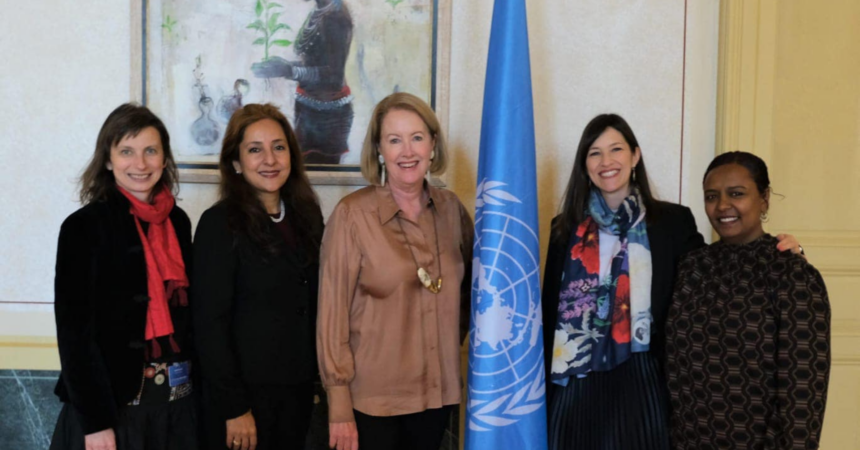A United Nations Working Group on discrimination against women and girls found that, in Malta, “violence against women and girls remains pervasive” with the most frequently encountered form being domestic violence.
The group noted how “sexual harassment on the streets, in schools, public transportation and at the workplace is pervasive, normalised and accepted”.
Domestic violence and femicide victim Bernice Cassar’s murder was noted as having “galvanized the community” with the statement noting that “in 2022, there were three cases of femicide”.
The group noted how despite “positive changes in the administration of justice, women face many obstacles in their path to justice, with delays, cumbersome procedures, and an inconsistent response based on who they encounter in the system.”
They noted how the “considerable backlog and delays in courts due to the lack of magistrates and judges,” meant that “it can take years for the justice system to resolve a case”. Once eventually in front of a judge or police, the group noted how victims faced discriminatory language, being asked “What were you wearing?” or “did you provoke him?”, noting that “the training given is not sufficient or adequate”.
Although Malta “has strong constitutional guarantees for equality between men and women,” the UN Working Group said it “lags in implementation,” with its “conservative society with a patriarchal structure holding back women and girls from finding a genuinely equal place”.
The UN working group’s findings were shared in a preliminary statement on Saturday following a 12-day mission to Malta during which they spoke to various stakeholders including within government, the judiciary, the healthcare and education sectors, activists, victims, and survivors of gender-based violence.
The statement covered a number of angles with observations on the legislative, cultural, political, economic, educational, health care, and judicial angles among others. The working group also made a number of recommendations to the state including the adoption of international human rights standards, an increase in the minimum age for marriage to 18, improved and scientifically accurate formal education and awareness programmes, and adequate training for public officials and the judiciary.
The UN Working Group made particular note of the lack of available standardised data, calling on the National Statistics Office to improve its efforts and for the state to adopt system-wide national data for an improved response.
The working group characterised Malta’s culture and norms as “firmly rooted in religious tradition,” in which “discriminatory gender-based stereotypes and beliefs still predominate” leading to some women finding it “difficult to thrive, held back by community pressure and cultural expectations of how a woman should behave”.
The working group was concerned about the “intimidating environment surrounding the debate on sexual and reproductive health rights,” noting online and offline attacks against women activists.
They noted that while Malta’s recent decriminalisation of abortion when the woman’s life is at immediate risk (subject to a doctor’s panel decision) is a positive development “Malta continues to have the most restrictive abortion law in all of Europe”.
The group regretted “the dismissal of a previous version of the bill which was broader in its scope” and noted how “World Health Organisation data has demonstrated that criminalizing termination of pregnancy does not reduce the number of abortions. Countries where women have the right to termination of pregnancy and are provided with access to information and to all methods of contraception, have the lowest rates of termination of pregnancy.”
While the working group supported Malta’s efforts in having more women in politics, it lamented that “political decision-making still remains male-dominated,” recommending for additional measures to encourage and support women in politics.
The UN Working Group of discrimination against women and girls’ statement was made by an expert delegation comprising Dorothy Estrada-Tanck and Elizabeth Broderick. The full ten-page statement can be read here.













It all boils down to moral values, ethics and strong principles that this progressive and liberal PL has introduced in the younger generation.
Unfortunately the three values mentioned above are considered ultra conservative.
Such arrogant and perfidious men are entities whose intellectual and emotional growth has been stunted. Too many of them inhabit these islands.
This is what being Liberal has ended in.
Remove all sense of decency.
Remove all sense of religion.
Remove all sense of discipline.
Complete the liberalization by a Sex Show on National TV.
Then do not be amazed to get a liberal team of two having sex on a bus at midday.
Prosit Parliament.